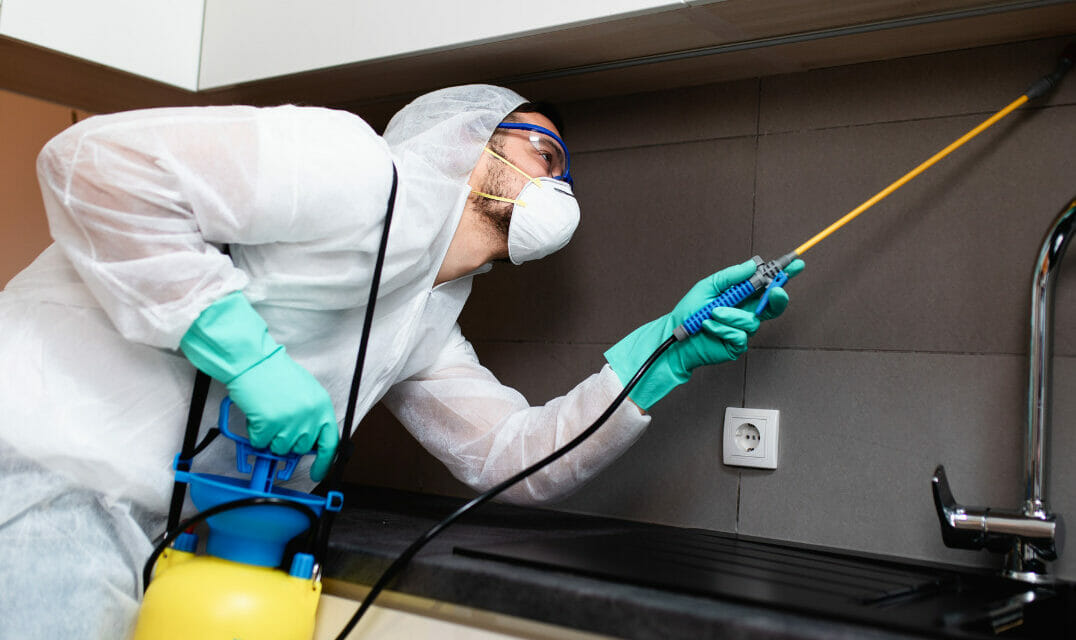Are you aware of the potential for winter pests to seek shelter in your home during the colder months? Don’t let these unwanted guests become a nuisance, cause damage to your property, or pose health risks to you and your family. At Axium Inspections, we want to help you stay proactive about pest control and keep your home safe and comfortable all winter. In this newsletter, we’ll discuss common winter pests in Colorado and offer tips for identifying and preventing infestations. So, let’s dive into the world of winter pest control!
Understanding Colorado’s Unpredictable Weather
Winter in Colorado can be long and harsh, with significant variations in temperature and snowfall depending on the region. The eastern plains tend to be colder and drier, while the mountains experience heavier snowfall and more extreme temperature swings.
These weather patterns can significantly impact the types of pests that are likely to seek shelter in your home during the winter. In areas with heavy snowfall, rodents such as mice and rats may be more likely to seek out warm, dry places to nest, while spiders and other insects may be more common in areas with milder winter temperatures.
For more information about Colorado’s winter climate, including average temperatures and snowfall amounts, visit the Colorado Climate Center’s website. Their site provides detailed data and analysis on weather patterns throughout the state, including historical trends and seasonal forecasts.
Identifying Winter Pests
During the winter, some common pests in Colorado may find their way into your home. These unwanted guests can cause damage to your property, spread disease, and create an uncomfortable living environment. It’s important to be aware and to keep these critters out to ensure that your home stays pest-free during the colder months.
- Mice and rats: These rodents can cause significant damage to homes by chewing through wires, insulation, and other materials. They are attracted to homes during the winter because of the lack of food and water sources outside and because homes provide warmth and protection from the elements.
- Spiders: Some spider species are more likely to seek shelter in homes during the winter, such as the black widow and brown recluse. These spiders are attracted to homes because they can find prey and shelter inside and because homes offer protection from the cold.
- Cockroaches: While cockroaches are typically associated with warmer climates, they can also be a problem in Colorado during the winter. They are attracted to homes because they can find food, water, and warmth inside and because homes offer protection from the cold.
Prevent Winter Pests From Entering Your Home
Here are some ways to keep pests out of your home during the winter:
- Seal cracks and gaps: Inspect the exterior of your home for cracks and crevices where pests can enter, including around doors, windows, vents, and utility pipes. Use caulk or weatherstripping to seal any openings you find.
- Keep food stored securely: Pests are attracted to food sources, so store all food in airtight containers and keep your kitchen clean and free of crumbs.
- Dispose of garbage regularly: Empty your trash cans often and keep them securely closed.
- Keep firewood away from your home: Storing firewood against the exterior of your home can attract pests. Instead, keep firewood at least 20 feet away from your house and elevated off the ground.
- Trim trees and bushes: Pests can use overhanging branches or bushes to access your home. Keep trees and bushes trimmed away from your house to prevent pests from using them as a bridge.
- Check your attic and crawl space: Ensure your attic and crawl space are well-insulated and adequately ventilated to prevent moisture buildup that can attract pests.
By taking these steps, you can help prevent winter pests from entering your home and causing damage or becoming a nuisance.
Treatment Options For Dealing With A Pest Infestation
While prevention is always the best approach to keeping pests out of your home, it’s not always possible to avoid an infestation altogether. That’s why it’s important to be aware of the available treatment options and take action quickly if you suspect a problem. Here are some common treatment options for dealing with a pest infestation, try these if you haven’t already:
- Chemical treatments: Chemical treatments involve using pesticides or insecticides to kill pests. These can be effective but should only be used by a licensed pest control professional.
- Natural remedies: There are many natural remedies that can help repel or deter pests, such as peppermint oil, vinegar, and diatomaceous earth. However, these remedies may not be as effective as chemical treatments and must be reapplied frequently.
- Traps: Traps can effectively catch and remove pests, such as rodents or insects. There are many different types of traps available, including live traps, snap traps and glue traps.
- Exclusion: Exclusion involves sealing up entry points to prevent pests from entering your home. This can include sealing cracks and gaps in your home’s exterior, installing screens on windows and doors, and adding weatherstripping.
If you suspect a pest infestation in your home, it’s essential to take action quickly to prevent the problem from worsening. You may also notice unusual smells or sounds, such as scratching or rustling, coming from walls or ceilings. Here are some telltale signs that you may have a pest problem:
- Unexplained bites or rashes on your skin
- Droppings or urine stains
- Chewed or damaged food packaging
- Strange sounds or smells, such as scratching or rustling noises or a musty odor
If you notice any of these signs, it’s important to contact a licensed pest control professional right away. They can help identify the type of pest you’re dealing with and recommend the best treatment option. By being aware of the treatment options available and taking action quickly if you suspect a pest problem, you can help protect your home and family from the negative effects of a pest infestation.
Thank you for taking the time to read this newsletter, and we hope you find this information helpful in keeping your home pest-free this winter. At Axium Inspections, we are committed to helping homeowners keep their homes safe and pest-free.
If you have any questions or concerns about your home’s pest situation, don’t hesitate to contact Axium Inspections for more information.





















